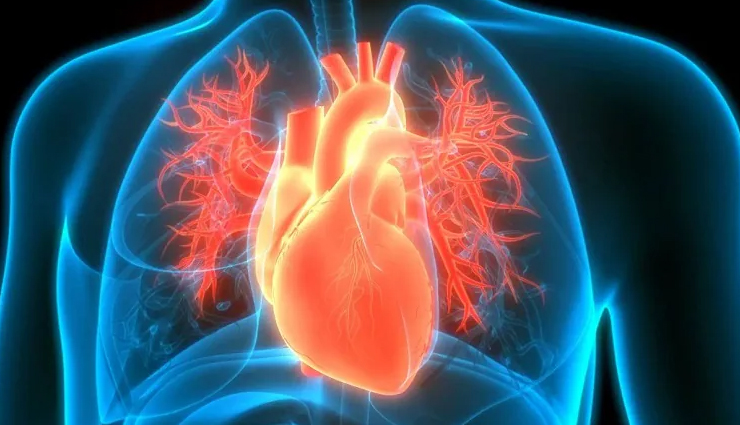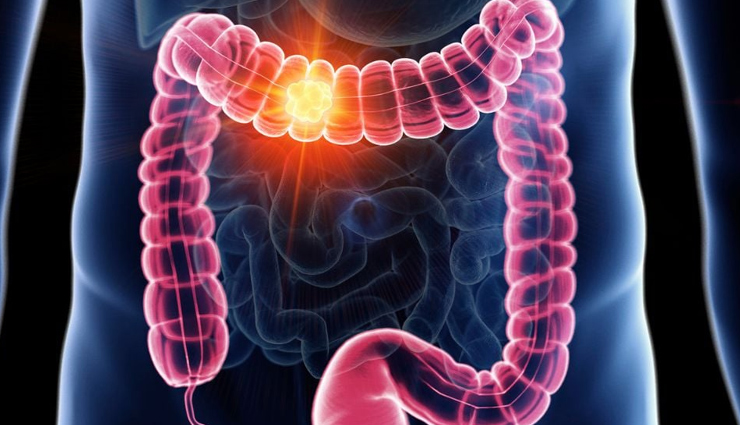- Home›
- Healthy Living›
- 10 Least Known Benefits Of Cycling
10 Least Known Benefits Of Cycling
By: Priyanka Maheshwari Sun, 24 Sept 2023 6:28:06

Cycling, often referred to as bicycling or biking, is a popular and versatile form of transportation, recreation, and sport that involves riding bicycles. It is a simple yet highly efficient means of human-powered transportation, consisting of a two-wheeled vehicle powered by pedaling, which propels the bike forward. Cycling has a rich history dating back to the early 19th century, and it has evolved into various disciplines and styles, each with its own unique characteristics and purposes.
Cycling is not only an excellent mode of eco-friendly transportation but also a fantastic way to promote physical fitness, cardiovascular health, and overall well-being. It can be enjoyed by people of all ages, from children learning to balance on their first bikes to seniors staying active in their later years. Moreover, cycling provides an opportunity to connect with nature, explore new places, and foster a sense of freedom on the open road or scenic trails.
The sport of cycling includes various competitive disciplines, such as road cycling, mountain biking, track cycling, and BMX racing, each requiring specific skills and equipment. Professional cycling events like the Tour de France and the Olympic cycling competitions showcase the highest levels of skill, endurance, and teamwork.
Cycling for 30 minutes
On average, a person who weighs around 155 pounds (70.3 kilograms) can expect to burn approximately:
Light cycling (leisurely pace): Approximately 149 calories
Moderate cycling (12-14 mph or 19-22.5 km/h): Approximately 260 calories
Vigorous cycling (16-20 mph or 25.5-32 km/h): Approximately 391 calories
Benefits of Cycling

# Helps You Lose Weight
Cycling stands out as an incredibly efficient exercise for shedding excess weight. Not only does it facilitate calorie burning, but it also engages and strengthens various muscle groups including your quadriceps, hamstrings, calves, biceps, glutes, shoulders, and back. Consequently, alongside achieving weight loss goals, you'll also experience muscle toning benefits.

# Enhances Cardiovascular Health
Engaging in bicycling can have a positive impact on your cardiovascular well-being since it primarily constitutes an aerobic workout. The heightened demand for oxygen in your muscles encourages your heart to pump more oxygen-rich blood, prompting it to work at an increased rate. Additionally, bicycling benefits your blood vessels and lungs, further contributing to the improvement of your heart health.

# Fortifies Muscular Strength
This enjoyable activity can also effectively bolster your muscle strength. As you engage in this exercise, your muscles will undergo a process of growth and fortification. The more your muscles experience wear and tear, the more robust they become. Bicycling specifically targets the strengthening of the calves, quadriceps, hamstrings, glutes, hip flexors, back muscles, shoulders, and arms. Additionally, it aids in expediting the recovery process from injuries. As a result, you'll experience heightened agility, flexibility, and endurance compared to those who do not engage in regular bicycle riding.

# Reduces Joint Pain
It's quite surprising, isn't it? How can this demanding physical activity alleviate joint discomfort? Well, indeed, cycling has the ability to alleviate joint pain, particularly in the knees. Consistent cycling contributes to enhanced joint mobility. This is mainly due to its gentle impact on your joints, which can aid in the recovery of minor joint or hip injuries and promote the restoration of cartilage.

# Improves Posture
When you engage in bicycle riding, you naturally incorporate a significant element of balance, often without even realizing it. This inherent balancing act serves to enhance your posture and overall bodily coordination while simultaneously strengthening your upper body muscles. Elements such as muscle strength, fitness level, weight, and more contribute to your posture and gait. Fortunately, by simply riding your bicycle for a minimum of 30 minutes each day, you address and improve all these factors.

# Combats Cancer
Surprisingly, cycling can also play a role in cancer prevention. A sedentary lifestyle can increase the risk of cancer by allowing the accumulation of toxins in the body, leading to DNA mutations and cellular damage. Poor dietary habits can result in issues like constipation and bloating, which are associated with colon cancer. Studies have shown that individuals who cycle for at least 30 minutes daily are less susceptible to developing breast and colon cancers. This is because cycling keeps your cells active and shields your DNA from mutation and oxidative harm.

# Alleviates Stress
The impact of stress can be more detrimental than one might realize. It can result in weight gain, elevated levels of LDL cholesterol and triglycerides in the bloodstream, asthma, diabetes, digestive issues, premature aging, anxiety, headaches, high blood pressure, depression, cardiovascular ailments, and even Alzheimer's disease. Bicycling offers a means to alleviate stress by diverting your focus from the issues that may be troubling you. Therefore, consider taking a bike ride to combat stress, whether it's at work or school. This outdoor activity with its gentle impact can significantly benefit your mental well-being.

# Enhances Physical Fitness
Engaging in cycling can significantly enhance your overall physical fitness. Whether you're cycling on flat terrain or tackling mountainous areas, it effectively promotes the functionality of your heart and blood vessels while engaging your leg, arm, and back muscles. Furthermore, cycling contributes to the improvement of lung capacity, flexibility, and endurance, while also increasing bone and muscle strength. What sets cycling apart as a fitness activity is its remarkable effortlessness, making it feel less like a strenuous workout compared to other exercise forms.

# Facilitates Easier Childbirth
For women who incorporate daily bicycle rides lasting at least 30-45 minutes into their routine, childbirth complications may be reduced. Cycling aids in building bone and muscle strength, enhancing posture, flexibility, and endurance, as well as strengthening the back muscles. Consequently, cycling is a highly recommended practice for those seeking to minimize childbirth-related complications. However, it is essential to consult with your doctor and obtain clearance before initiating any exercise regimen during pregnancy.

# Enhances Cognitive Function
Cycling plays a pivotal role in boosting cognitive function. The act of riding a bike demands focused attention, coordinated muscle movements, and the maintenance of balance. Additionally, cycling fosters a sense of relaxation, subsequently clearing the mind and leading to improved decision-making. Furthermore, bicycling promotes the generation of new cells in the hippocampus region of the brain and enhances oxygen delivery to the brain, which serves as a protective measure against neurodegenerative diseases.





